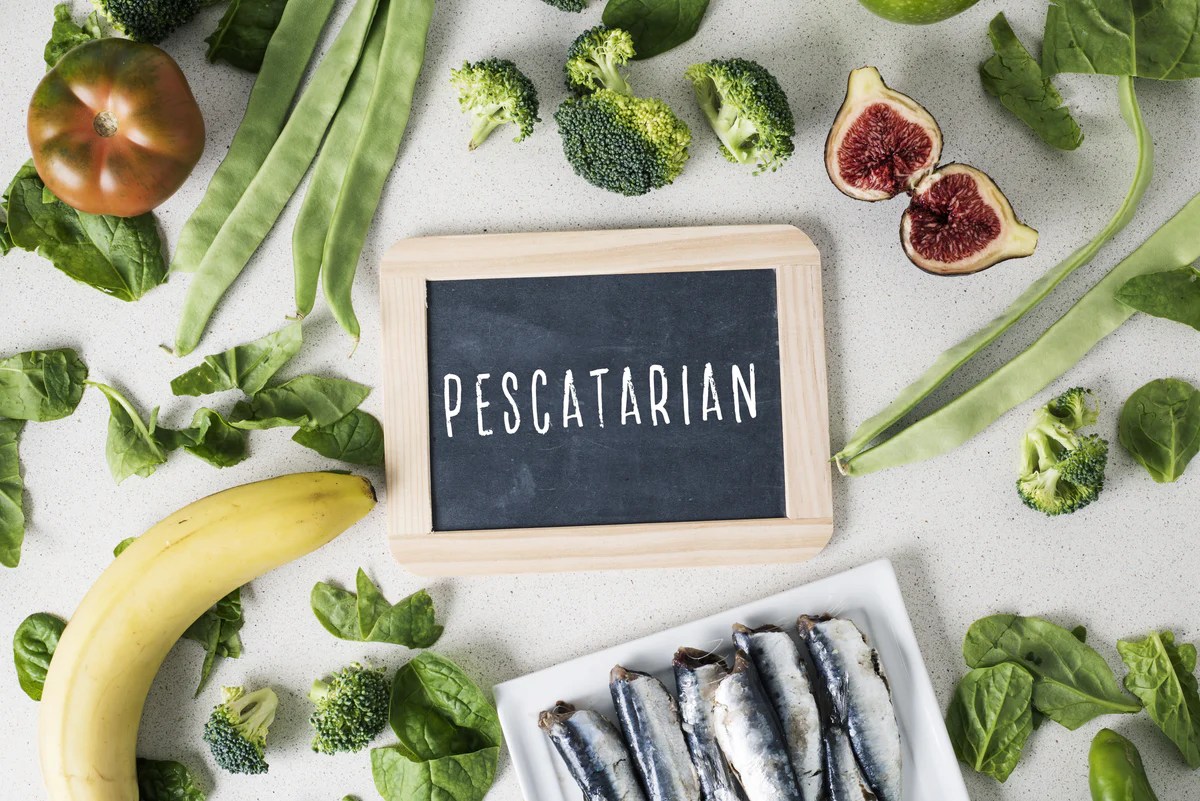What do you call a person that only eats fish? Embark on a culinary adventure as we delve into the world of piscivores, individuals who derive their sustenance solely from the depths of the aquatic realm. From the biological adaptations that enable their unique dietary choices to the cultural and environmental implications of their lifestyle, this exploration promises to unravel the fascinating complexities of a piscivorous existence.
Beyond the scientific definition, we’ll also uncover the motivations and practices of pescatarians, a subset of piscivores who abstain from consuming all other animal products. Statistics and studies will shed light on the prevalence of pescatarianism, while insights into their dietary habits and nutritional considerations will provide a comprehensive understanding of this intriguing dietary approach.
Piscivore Definition
A piscivore is an animal whose primary food source is fish. The term “piscivore” is derived from the Latin words “piscis” (fish) and “vorare” (to devour).
Piscivores are found in a wide variety of habitats, including freshwater, saltwater, and brackish water. They can be found in all parts of the world, from the tropics to the poles.
Examples of Piscivorous Animals
Some common examples of piscivorous animals include:
- Fish-eating birds, such as ospreys, eagles, and pelicans
- Fish-eating mammals, such as seals, sea lions, and dolphins
- Fish-eating reptiles, such as crocodiles, alligators, and snakes
- Fish-eating amphibians, such as frogs and salamanders
- Fish-eating invertebrates, such as squid, octopus, and jellyfish
Piscivores play an important role in the food chain. They help to control the populations of fish, which can in turn help to improve the health of aquatic ecosystems.
Human Piscivores
Human piscivores, also known as pescatarians, are individuals who adhere to a diet primarily consisting of fish and seafood. While they abstain from consuming meat from terrestrial animals, pescatarians may incorporate eggs, dairy products, and plant-based foods into their diets.
The motivations for adopting a pescatarian diet vary. Some individuals choose this dietary pattern for ethical reasons, as they may object to the slaughter of land animals. Others may be drawn to the health benefits associated with fish consumption, such as reduced risk of heart disease and improved cognitive function.
Prevalence of Pescatarianism
Studies have shown that pescatarianism is becoming increasingly prevalent worldwide. A survey conducted in the United States found that approximately 5% of the population identifies as pescatarian. This trend is particularly noticeable among younger generations, with a higher percentage of millennials and Generation Z adopting this dietary pattern.
Physiological Adaptations

Piscivores, both animals and humans, possess unique physiological adaptations that enable them to thrive on a fish-based diet. Their digestive systems and nutritional requirements differ significantly from omnivores, reflecting their specialized feeding habits.
Digestive System
- Shorter Digestive Tract:Piscivores generally have shorter digestive tracts compared to omnivores. This adaptation allows for quicker passage of food through the digestive system, minimizing the risk of bacterial growth and reducing the need for complex digestion of plant material.
- Specialized Stomach:The stomachs of piscivores are often equipped with strong muscular walls and a highly acidic environment. These adaptations aid in the efficient digestion of fish bones and other hard tissues.
- Reduced Intestinal Length:Piscivores have relatively shorter intestines compared to omnivores. This reduced length limits the absorption of carbohydrates, as fish contain lower amounts of these nutrients.
Nutritional Requirements
- High Protein and Fat:Fish is a rich source of protein and fat, which are essential nutrients for piscivores. Their bodies are adapted to extract these nutrients efficiently from their diet.
- Low Carbohydrate:Piscivores have a low requirement for carbohydrates, as fish contains only small amounts of these nutrients. Their bodies rely primarily on protein and fat for energy.
- Essential Fatty Acids:Fish is a good source of omega-3 fatty acids, which are essential for brain and heart health. Piscivores are able to absorb and utilize these fatty acids efficiently.
Health Implications
A piscivorous diet can offer certain health benefits, such as a reduced risk of cardiovascular disease and improved brain function. However, it also poses potential risks, including:
- Mercury Accumulation:Fish can accumulate mercury, a heavy metal that can have toxic effects on the nervous system. Piscivores who consume large amounts of fish may be at risk of mercury poisoning.
- Vitamin D Deficiency:Fish is not a good source of vitamin D, which is essential for bone health. Piscivores who do not supplement their diet with vitamin D may be at risk of deficiency.
- Iodine Deficiency:Fish is a good source of iodine, but not all fish species contain sufficient amounts. Piscivores who rely heavily on certain fish species may be at risk of iodine deficiency.
Cultural and Historical Significance

Fish has played a significant role in human societies throughout history. Many cultures around the world have traditionally relied on fish as a primary food source, providing sustenance and shaping their cultural practices.
Examples of Societies Reliant on Fish
* Japan:Japan has a long history of piscivory, with fish being a staple in the Japanese diet for centuries. Sushi, sashimi, and other fish-based dishes are integral to Japanese cuisine.
Scandinavia
The Scandinavian countries have a strong tradition of fishing and consuming fish. Herring, cod, and salmon are important dietary staples in the region.
Coastal Communities
Many coastal communities around the world have traditionally relied on fish as a primary food source, as it is readily available and provides essential nutrients.
Fish in Religious and Culinary Practices
Fish holds religious and cultural significance in many societies:* Christianity:Fish is a symbol of Christianity, representing Jesus Christ and the apostles. It is often consumed on Fridays and during Lent.
Hinduism
Some Hindu sects consider fish to be sacred and abstain from eating it.
Culinary Traditions
Fish is used in various culinary traditions worldwide, from traditional dishes like fish and chips to more elaborate preparations in fine dining restaurants.
Environmental Considerations
Piscivory, the consumption of fish as a primary food source, can have a significant impact on fish populations and marine ecosystems. Understanding these environmental implications is crucial for promoting sustainable fishing practices and preserving the health of aquatic environments.
Impact on Fish Populations
- Depletion of Fish Stocks:Overfishing, driven by piscivory, can lead to the depletion of fish stocks, affecting the balance of marine ecosystems and reducing biodiversity.
- Alteration of Fish Behavior:The presence of piscivores can alter fish behavior, making them more cautious and reducing their foraging efficiency, which can have long-term consequences on their growth and reproduction.
Impact on Marine Ecosystems
- Disruption of Food Chains:Piscivores play a crucial role in marine food chains. Their absence or overabundance can disrupt the balance of predator-prey relationships, leading to cascading effects on other species.
- Habitat Degradation:Some piscivores, such as seals and sea lions, can cause habitat degradation through their foraging activities, impacting the availability of shelter and food sources for other marine organisms.
Sustainable Fishing Practices, What do you call a person that only eats fish
To mitigate the environmental impact of piscivory, sustainable fishing practices are essential. These include:
- Quotas and Regulations:Establishing fishing quotas and regulations helps prevent overfishing and ensures the long-term sustainability of fish stocks.
- Selective Fishing Methods:Using selective fishing methods, such as hook-and-line or traps, can minimize bycatch and protect non-target species.
- Habitat Protection:Protecting critical fish habitats, such as spawning grounds and nursery areas, is crucial for maintaining healthy fish populations.
Responsible Consumption
Responsible consumption plays a vital role in promoting sustainable piscivory. By choosing sustainably caught fish and seafood, consumers can support responsible fishing practices and reduce the environmental impact of their dietary choices.
Dietary Variety and Nutrient Profile

Piscivorous diets offer a unique set of nutritional advantages and challenges compared to omnivorous diets. Let’s delve into the dietary variety and nutrient profile of these two dietary patterns.
A key distinction between piscivorous and omnivorous diets lies in the primary source of protein. Piscivores primarily consume fish, while omnivores consume a wider range of animal and plant foods. This difference in dietary composition has implications for the overall nutrient profile.
Nutrient Profile
Essential Nutrients:Both piscivorous and omnivorous diets can provide essential nutrients, including vitamins, minerals, and fatty acids. However, certain nutrients may be more abundant in one dietary pattern over the other.
Protein Content:Fish is a rich source of protein, making piscivorous diets typically higher in protein content compared to omnivorous diets. Protein is essential for building and repairing tissues, producing enzymes, and supporting overall body function.
Potential Nutrient Deficiencies:While fish provides a range of nutrients, piscivorous diets may be deficient in certain nutrients, such as vitamin C, vitamin D, and iron. It’s important for piscivores to supplement their diets with these nutrients through other sources, such as fruits, vegetables, or fortified foods.
Dietary Variety
Omnivorous Diets:Omnivores have a wide range of food choices, including fruits, vegetables, grains, legumes, meat, fish, and dairy products. This diversity allows for a greater intake of various nutrients and reduces the risk of nutrient deficiencies.
Piscivorous Diets:Piscivores have a narrower dietary range, primarily consuming fish and sometimes other aquatic animals. While fish provides a good source of nutrients, the limited variety may increase the risk of nutrient deficiencies if the diet is not supplemented with other food sources.
Recommendations for a Balanced Piscivorous Diet
To ensure a balanced and healthy piscivorous diet, it’s recommended to:
- Incorporate a variety of fish species into the diet to obtain a wider range of nutrients.
- Supplement the diet with fruits, vegetables, and fortified foods to compensate for potential nutrient deficiencies.
- Consider consulting with a healthcare professional or registered dietitian for personalized dietary guidance.
By following these recommendations, piscivores can enjoy the nutritional benefits of a fish-based diet while minimizing the risk of nutrient deficiencies.
Unique Challenges and Considerations
As piscivores, individuals who primarily consume fish face unique challenges and considerations that must be addressed to maintain a healthy and balanced diet. These include:
Mercury Exposure
Fish, particularly larger and predatory species, can accumulate mercury in their tissues. Excessive mercury consumption can lead to neurological damage, developmental disorders, and other health issues. To mitigate this risk, piscivores should:
- Limit consumption of high-mercury fish, such as swordfish, tuna, and king mackerel.
- Choose smaller fish species, which tend to have lower mercury levels.
- Eat a variety of fish species to reduce the risk of accumulating mercury from any single source.
Vitamin B12 Deficiency
Fish is a poor source of vitamin B12, an essential nutrient for red blood cell production and neurological function. Piscivores who do not supplement their diet with vitamin B12 may develop a deficiency, leading to fatigue, anemia, and other health problems.
To ensure adequate vitamin B12 intake, piscivores should:
- Consume fortified foods, such as breakfast cereals and nutritional yeast.
- Consider taking a vitamin B12 supplement, especially if they follow a strict pescatarian diet.
Ending Remarks: What Do You Call A Person That Only Eats Fish
Our journey through the world of piscivory concludes with a thought-provoking analysis of its broader implications. We’ll examine the cultural and historical significance of fish consumption, tracing its role in societies around the globe. The environmental impact of piscivory on marine ecosystems and fish populations will also come under scrutiny, highlighting the importance of sustainable fishing practices and responsible consumption.
Ultimately, this exploration of what do you call a person that only eats fish serves as a testament to the diversity of human dietary choices and the intricate relationship between our food and our planet. Whether you’re a curious foodie, a health-conscious individual, or simply fascinated by the wonders of the natural world, this discourse offers a captivating immersion into the world of piscivores and pescatarians.
FAQ Corner
What are the potential health benefits of a piscivorous diet?
Studies have linked piscivorous diets to reduced risks of cardiovascular disease, stroke, and certain types of cancer. Fish is an excellent source of omega-3 fatty acids, which have anti-inflammatory properties and may protect against chronic diseases.
What are the challenges faced by piscivores?
Piscivores may be at risk of mercury exposure and vitamin B12 deficiency. Mercury is a neurotoxin that can accumulate in fish, and vitamin B12 is primarily found in animal products. It’s important for piscivores to consume a variety of fish species and supplement with vitamin B12 if necessary.
How can piscivores ensure a balanced and healthy diet?
To ensure a balanced and healthy piscivorous diet, it’s important to consume a variety of fish species, including both fatty and lean fish. It’s also important to include other nutrient-rich foods in the diet, such as fruits, vegetables, whole grains, and legumes.
Leave a Comment